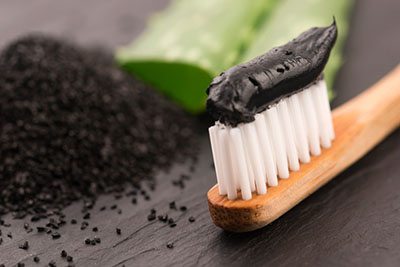Charcoal-based toothpastes, which claim to whiten teeth, are a “marketing gimmick” which could increase the risk of tooth decay and staining, says a review in the British Dental Journal.
The charcoal products, which are increasingly popular, often contain no fluoride to help protect the teeth, according to BBC.
And there is no scientific evidence to back up the claims they make, the authors say.
Excessive brushing with them can do more harm than good, they add.
They advise people to go to their dentist for advice on bleaching, or whitening, their teeth.
And they say it is better to stick to using a regular fluoride-based toothpaste.
NHS dentist charges rise by 5% in England
‘Misleading’ toothpaste TV advert banned by watchdog
Charcoal was first used for oral hygiene purposes in ancient Greece, as a way of removing stains from teeth and disguising unpleasant odours from diseased gums.
Celebrity effect
Dr Joseph Greenwall-Cohen, co-author of the study from the University of Manchester Dental School, said “more and more shops are selling charcoal-based toothpastes and powders”, including Superdrug, Boots and Tesco, after celebrities had started talking about using them.
But he said the claims they made had been found to be unproven by a 2017 US review of 50 products.
Some said they were “anti-bacterial” or “anti-fungal”, that they helped with “tooth whitening” and would “reduce tooth decay”.
The review said people were brushing regularly with the charcoal-based products in the hope that they would offer “a low cost, quick-fix, tooth-whitening option”.
But too much brushing could lead to tooth wear and more sensitive teeth and, with few of the products containing fluoride or making the ingredient inactive, any protection from tooth decay was limited, it said.
‘Don’t believe the hype’
“When used too often in people with fillings, it can get into them and become difficult to get out,” Dr Greenwall-Cohen said.
“Charcoal particles can also get caught up in the gums and irritate them.”
He said charcoal toothpastes and powders were more abrasive than regular toothpastes, potentially posing a risk to the enamel and gums.
The charcoal contained in today’s toothpastes is usually a fine powder form of treated charcoal, the review says.
Charcoal can be made from materials including nutshells, coconut husks, bamboo and peat, and possibly wood and coal.
H.Z

